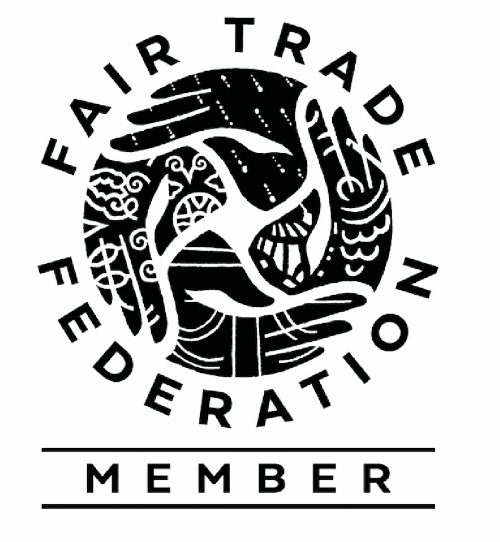Earlier this year, when the COVID-19 pandemic reached America, thousands of people had trouble getting face masks. There simply weren’t enough to keep everyone safe and healthy.
Beginning in March, we’re pleased to say, Unique Batik took action to address this problem. Working in tandem with skilled artisans and longtime retail customers, we were able to produce thousands of masks — and to make them freely available.
In Guatemala, for instance, artisans created soft, colorful masks from traditional corte fabric. In Thailand, artisans made beautiful tie-dyed masks.
We donated many of these masks to nonprofit organizations, and several of our retailers did the same, or facilitated the donation process. Here are some inspiring examples of fair-trade stores doing their part:
The Bridge (Holland, Michigan)
Volunteers bought masks and sent them to the Navaho Nation, a coronavirus hotspot with an infection rate among the highest in the country. Now, thanks to contract tracing, social distancing, and a mask mandate, the Nation has almost completely eliminated new infections.
Blue Heron Design (Lee’s Summit, Missouri)
Blue Heron gave masks away for free. With donations from its customers, the store raised almost $3,500 for four local organizations: Hope House, Lee’s Summit Social Services, Black Waters Market Food Pantry, and the Humane Society Animal Shelter (which received masks with a cat print). “I’m proud of our customers,” says owner Peggy Brown, “and humbled by their generosity.”
Mosaic Fair Trade Collection (Eugene, Oregon)
Mosaic helped customers donate masks to the Navajo Nation. For more information about the Nation and its response to COVID-19, click here.
Thanks to everybody who has helped us get masks to the people who need them!
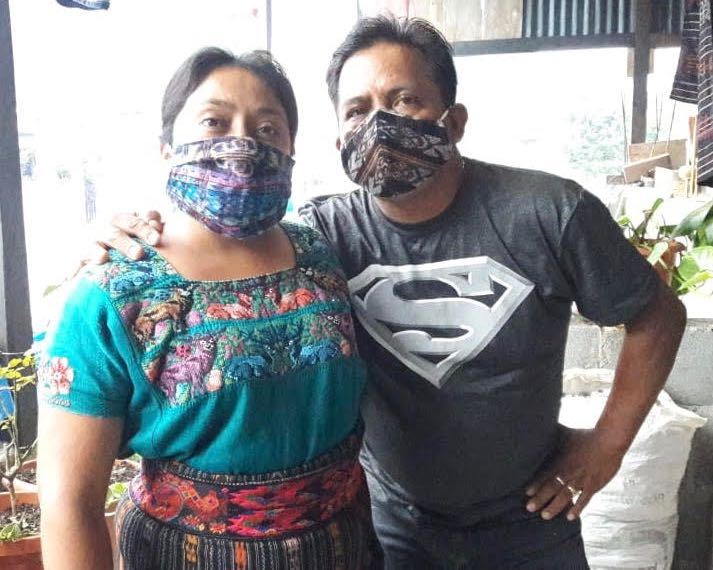
When you buy a face mask from Unique Batik, you’re helping talented artisans, like Laura and Francisco, who've been hit hard by the coronavirus pandemic.
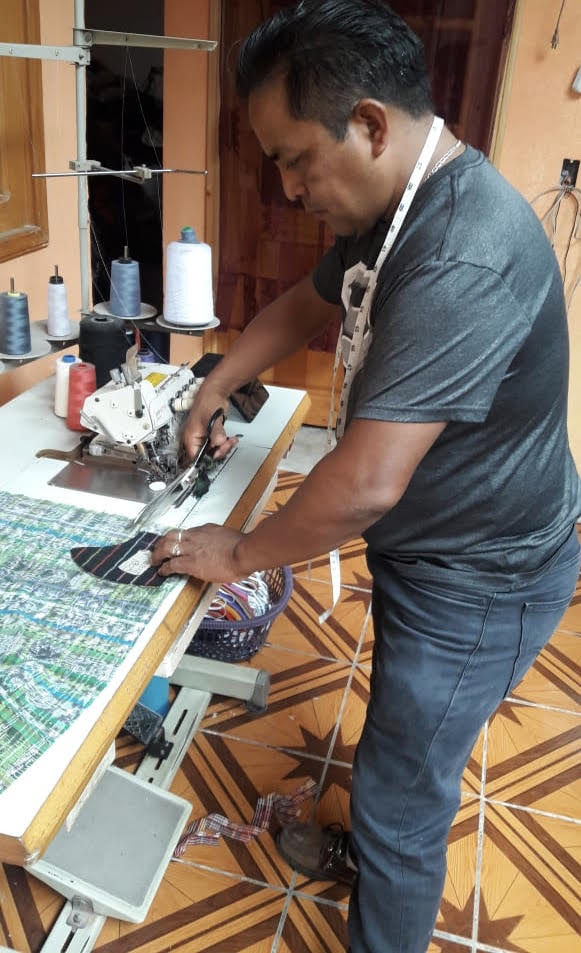
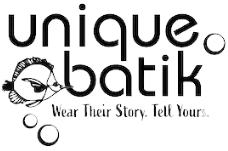
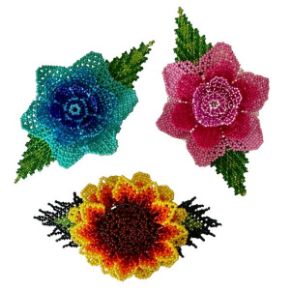

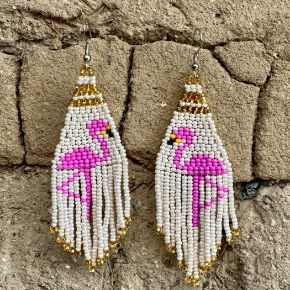
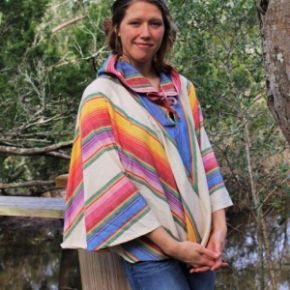
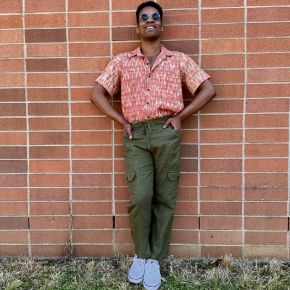
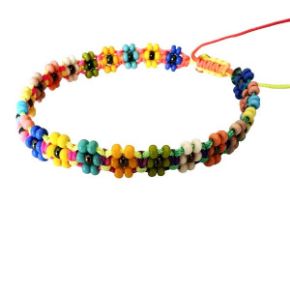
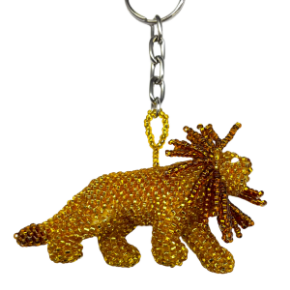
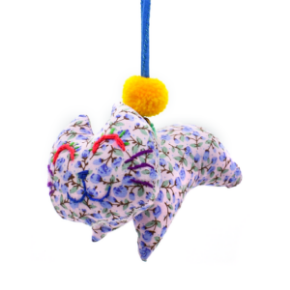
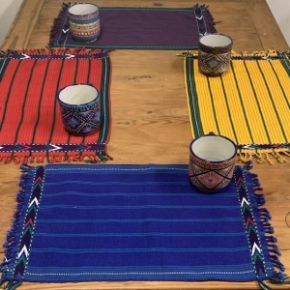
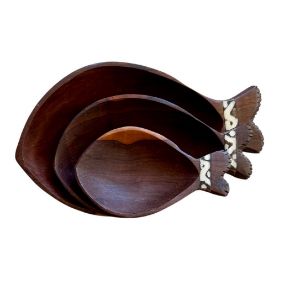
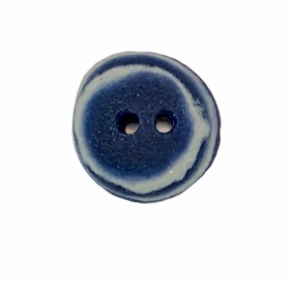
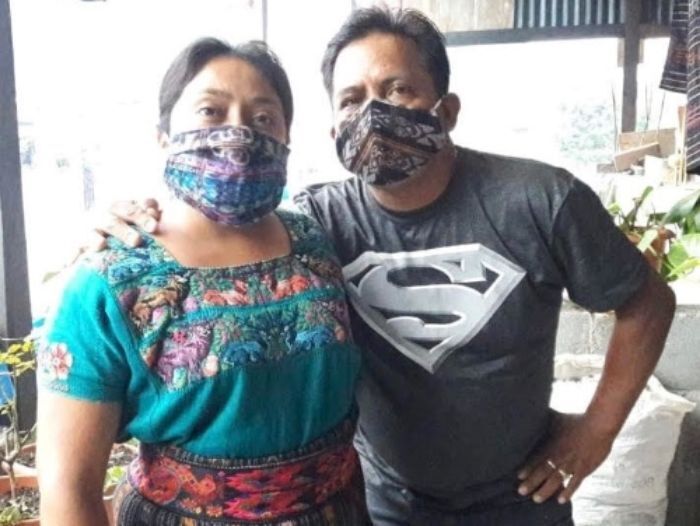

 Atitlan. The group started out as “Arte Indigena T’zutujil”, a name reflective of the T’zutujil Maya people who founded their village of Panabaj and that of nearby Tzanchaj, and whose culture and language are prevalent even today. The group has faced a long and sometimes arduous road to their current success. One of the most tragic times they faced was in October, 2005 when a mudslide triggered by the heavy rains from Hurricane Stan struck, leaving an estimated 600 of the 3,000 villagers dead or missing, and those who escaped with little more than the clothes they were wearing. Many of the artisan group lost their husbands, children, and houses.
Atitlan. The group started out as “Arte Indigena T’zutujil”, a name reflective of the T’zutujil Maya people who founded their village of Panabaj and that of nearby Tzanchaj, and whose culture and language are prevalent even today. The group has faced a long and sometimes arduous road to their current success. One of the most tragic times they faced was in October, 2005 when a mudslide triggered by the heavy rains from Hurricane Stan struck, leaving an estimated 600 of the 3,000 villagers dead or missing, and those who escaped with little more than the clothes they were wearing. Many of the artisan group lost their husbands, children, and houses. At the time, it seemed uncertain whether Panabaj would even be rebuilt. Many people were relocated to government housing in settlement further east, but despite the efforts of the government, the call of their ancestral home brought back most of the villagers to rebuild. Now the town looks much as it did before the catastrophe, although those who survived will never forget those they lost. In honor of their village, the group became ‘Las Mujeres de Panabaj’.
At the time, it seemed uncertain whether Panabaj would even be rebuilt. Many people were relocated to government housing in settlement further east, but despite the efforts of the government, the call of their ancestral home brought back most of the villagers to rebuild. Now the town looks much as it did before the catastrophe, although those who survived will never forget those they lost. In honor of their village, the group became ‘Las Mujeres de Panabaj’.  members only earn money through their artesania, and the group is run very democratically, with a legal board of directors that changes every two years. Their weaving and jewelry making allow the women who, as T’zutujil Maya, speak little to no Spanish, to support their families despite this disadvantage in the Guatemalan business world. The women can earn approximately $6.50 a day, which in the local economy is a fair price for their work. Artisans are paid promptly, every fifteen days. The group also helps those who want to pursue furthering their education; a few women have received scholarships to go to high school. The group is not limited to its original members, but accepts and trains new members, who are taught the beading and weaving techniques, making jewelry and products woven on a flat loom, such as belts.
members only earn money through their artesania, and the group is run very democratically, with a legal board of directors that changes every two years. Their weaving and jewelry making allow the women who, as T’zutujil Maya, speak little to no Spanish, to support their families despite this disadvantage in the Guatemalan business world. The women can earn approximately $6.50 a day, which in the local economy is a fair price for their work. Artisans are paid promptly, every fifteen days. The group also helps those who want to pursue furthering their education; a few women have received scholarships to go to high school. The group is not limited to its original members, but accepts and trains new members, who are taught the beading and weaving techniques, making jewelry and products woven on a flat loom, such as belts. .JPG)












